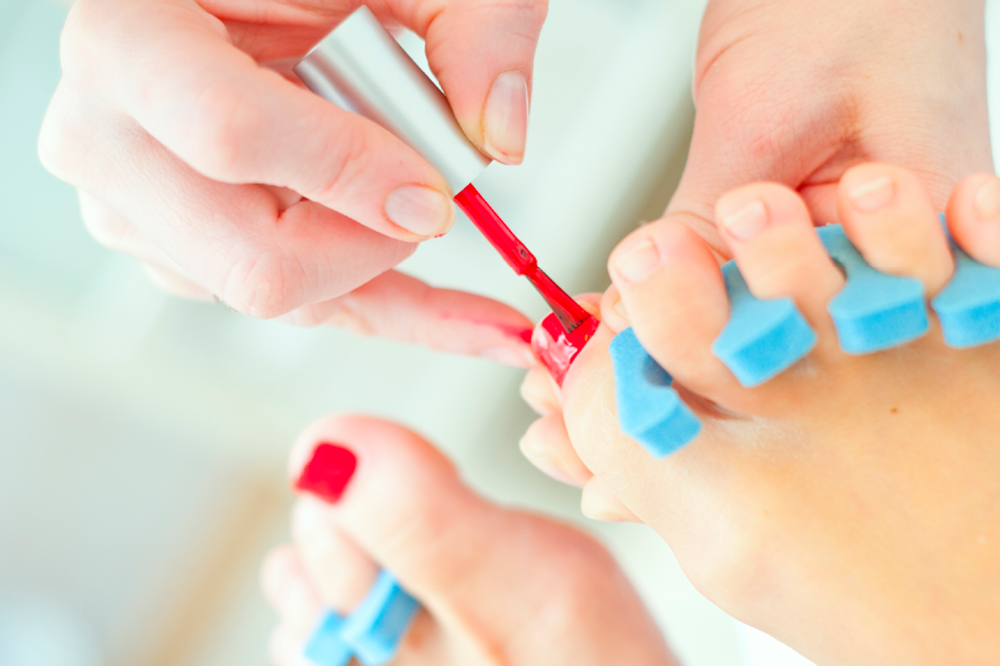Going to the salon for a manicure or a pedicure is meant to be a relaxing experience, but there are many surprise risks and dangers lurking in even some of the most glamorous of establishments. Read on to find out what many spas and nail salons don’t want you to know. Having the facts could save your life.
Infections Happen Frequently
You may think that if you go to a clean, reputable spa or salon for your manicures and pedicures that you are risk free. However, this couldn’t be further from the truth. Millions of bacterial and fungal infections are spread each year via manicures and pedicures, and some of the fanciest places are not exempt from the list. Not only is it virtually impossible to thoroughly clean every tub, tube and hose used for a manicure and pedicure, up to 75% of US salons don’t disinfect their instruments and equipment according to state guidelines.
You Won’t Receive a Completely Sterile Mani/Pedi

As we described above, it’s nearly impossible for any salon to keep completely clean and sterile. Additional roadblocks on the path to sterility include the fact that many disinfecting solutions aren’t designed to kill 100% of all bacteria, fungus and viruses, and the only way to fully disinfect instruments is to use an autoclave — a disinfecting machine that only about 1% of nail salons use on a regular basis.
Additionally, not all manicure and pedicure devices can be sterilized (pumice stones, nail files, emery boards and toe separators, for example). Therefore, it’s best that you bring your own for nail treatments. If you do see disposable products like files and orange sticks that have staining, dents or polish suggesting they were previously used, you may want to report the salon to your local Board of Health.
They Sometimes Swap Out and Dilute Products
You just never know what you’re paying for, and sometimes you’re paying a high price for quality products you’re not actually getting. Many salons have been found to put cheap products in the bottles and containers of high quality products as well as diluting clumpy nail polish with remover to give it a “refresh.” While the latter might not seem that bad, it can lead to faster chipping on your fingernails and toenails, meaning you don’t get the long-lasting mani/pedi you paid for.
Callus Removal Isn’t Always Necessary
Most people assume that calluses must be removed, but that isn’t always true. Sometimes calluses actually protect the feet, like in the case of certain athletes. And some podiatrists warn that cutting and shaving off calluses can actually cause the skin to grow back even harder and thicker. The best way to remove calluses is by soaking your feet and scrubbing them off at home only when they become uncomfortable.
They Don’t Refuse Customers
Clients equal money, so many spas and salons won’t turn away customers — even if they show signs of illness or infection. And even if salons did refuse the obviously sick customers (which they’re unlikely to do), there are many illnesses— communicable or other — that don’t show signs and symptoms, including hepatitis, which can spread via manicure and pedicures.
Pedicure Infections Can Take Months to Develop
Many salons get off scot free when it comes to being blamed for the spread of infections like staph, boils, warts and toenail fungus simply because some infections can take months to develop, meaning many people don’t even realize the salon is where they picked up the infection in the first place.
Millions of people go to salons on a regular basis and experience little to no problems. In fact, there have only been two documented cases of “death by pedicure” since the practice became popular. However, if you’re in doubt or in fear of catching an infection, you can either bring your own instruments to the salon, or you easily give yourself a manicure or pedicure at home. After all, no matter how you achieve it, the end result is to have happy, healthy feet you can feel proud to show off.


